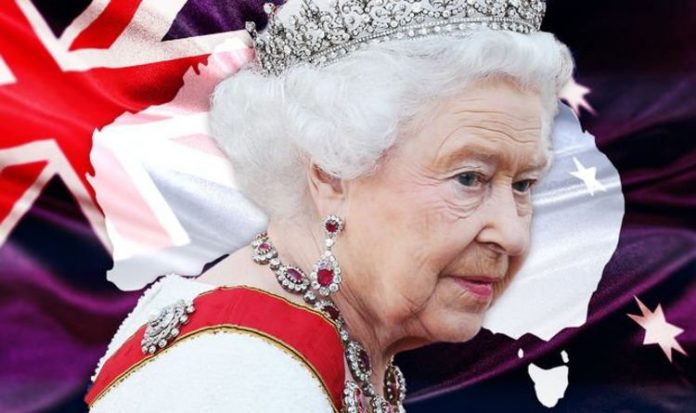Professor Jenny Hocking said the release of the Palace Letters has reinforced a sense of inevitability that Australia will become a republic soon and will complete “that post-colonial project where we need to sever those ties”. The Palace Letters are 45-year-old correspondence between the Queen, her private secretary and the Governor-General of Australia in the lead up to the Dismissal, which were kept under wraps until this year. The Dismissal is a famous moment of political upheaval in Australia, when the Governor-General Sir John Kerr ‒ who is the Queen’s representative in Australia ‒ dismissed Prime Minister Gough Whitlam and his government in 1975.
Leader of the Opposition Malcolm Fraser was installed as caretaker Prime Minister and debate has raged ever since about how much the Queen knew, and whether she had any role to play.
Ms Hocking fought a four-year legal battle to have the Palace Letters released and was successful in May, with the contents being published in July.
The historian, who is also on the National Committee of the Australian Republic Movement, said the cause has boosted interest and membership of the organisation.
She told Express.co.uk: “There is no doubt it has increased certainly interest, membership and concern that in strange residual ways there are still connections to the former imperial power that we don’t anticipate and don’t expect and shouldn’t pertain in a modern democracy as an independent state, as we believe we are.
READ MORE: Queen’s decision to block release of letters branded intolerable

Australia becoming a Republic is “inevitable” (Image: GETTY)

One of the hundreds of Palace Letters (Image: National Archives of Australia)
“And it simply reinforced the view that there is a sense of inevitability about becoming a republic and completely that sort of post-colonial project where we need to sever those ties.
“They have been largely severed since and come through the Australia Act in 1986, and so to some extent the peculiarities about the relationship in 1975, particularly in relations between the states and the crown, are no longer the same.
“But nevertheless, the fact that the Queen was still imposing an embargo even this year over material in our own archives.
“I mean, there is another example right there, quite aside from the letters themselves, the fact is that the Queen was imposing an embargo over those letters in our own archives ‒ that is intolerable.

Historian Jenny Hocking (Image: Janusz Molinski Photography)
“So I think all these things have made people realise there are aspects of our residual relationship as a constitutional monarchy that are still troubling and we need to sever.
“We have tried that in a referendum that didn’t succeed but, as I said, I do see it as inevitable that at some point in the relatively near future, we will become a republic.”
Australia had a referendum in 1999 in which 54.9 percent of the population voted against becoming a republic.
However, Ms Hocking argued that this was a consequence of the republican side not having a definitive alternative.
DON’T MISS
Heartwarming reason Anne was made ‘Princess Royal’ by Queen [REVEALED]
Prince Harry’s ‘tone deaf’ comments about London torn apart [EXPERTS]
Prince Charles took £82k trip in private jet to speech on environment [INSIGHT]

The Queen in Australia in 2011 (Image: GETTY)
In other words, republicans were split on what they wanted the head of state role to look like, for example, whether it would be appointed or directly elected.
Hower, a recent YouGov poll found that 62 percent of Australians want an Australian head of state.
Last month, Barbados announced its decision to break away from the monarchy and set up its own head of state.
Ms Hocking said she thinks this could set off a chain reaction, and that there is a “gradual move towards republican status” throughout the Commonwealth.
However, she cautioned that for Australia to vote to become a republic, the cause would need bipartisan support.
She said: “The history of referenda ‒ and it does have to be passed through a referendum in Australia ‒ history of referenda has really shown us that without bipartisan support the opportunity of passing a referendum is almost non-existent.
“It’s extremely difficult to pass referenda in Australia without bipartisan support, because you not only have to get a majority support nationally, you also need to get a majority of the states supporting as well.
“So that’s a difficult ask and, because we have two very strong major parties with strong consistent support bases, that will almost always bring you the highest likelihood of success.
“So there’s a couple of hurdles, pretty big hurdles, to get through, but it’s not really a question of whether people support a republic or not ‒ because by and large the majority does ‒ but it starts to splinter around those questions about how we get there.”
Professor Hocking added that, in her view, they needed to bring together the two strains of thought ‒ an appointed head of state versus an elected one ‒ and come to a halfway house situation, whereby perhaps the Parliament would nominate several contenders and the public vote or vice versa.
However, she said that the Australian Republic Movement as a whole has not come to a conclusion as to the exact form an Australian head of state and Republic would take.







